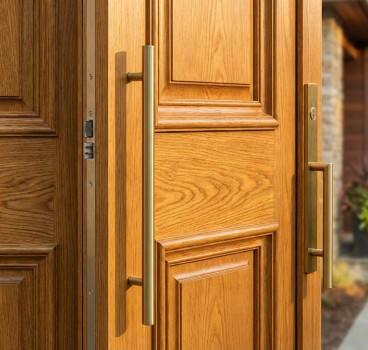It’s time to start building responsibly
Building homes to a decent standard should be a given, but in the present climate, new-build homes are underperforming and quality is becoming more and more of an issue. Clearly, solutions are needed which is why the March release of The Good Homes Alliance (GHA) manifesto, A Charter for Responsible Housebuilding, is so timely and cries out for a shake-up when it comes to quality in volume housebuilding
GHA members – a group of housing developers and building professionals committed to building and monitoring sustainable homes – believe that improving the sustainability credentials of our housing stock is certainly no less important in the current climate. Their manifesto focuses on the government's decision to scrap Zero Carbon Homes, with no clear replacement plan. This decision seemed to make no sense when considering the UK government commitments to COP21 and emissions reductions targets for 2050.
The manifesto states: ‘The problem is, that without changes to regulation and compliance the wider industry does not feel compelled to act. Only the few take this issue to heart and are rightly seen as in the vanguard of a responsible housing movement.' It highlights a need to re-implement a new trajectory and timetable for near-zero carbon targets for new homes.
In order for these ambitious zero carbon targets to be met it urges housebuilders and Renewable Energy developers to start working together and develop cost-effective strategies.
The report goes on to suggest the compliance system of SAPs and EPCs is not fit for purpose. Building Regulations Part L and F should be reviewed and to help bring a quality focus back and a new system should be implemented which includes more rigorous quality control processes from concept to post-construction testing.
Alongside this, hand-in-hand with Brexit concerns, the manifesto touches on the need for skilled workers at every stage of the build project for all disciplines, trades and professions. A policy needs to be put in place to ensure home nations workers meet the required level of skill and foreign workers are protected following the Brexit negotiations.
Finally, the report concludes ‘Inhabitants' health and wellbeing must be embedded in all aspects of the design and construction processes. Clearly, all parties need to make a concerted effort to shift the market towards a focus on the mental health and wellbeing of people who occupy the homes we build and retrofit.
The GHA hits the nail on the head with an open and honest declaration of how the industry is performing. With the demand for housing being at its highest since the crisis endured in the 1960's, the government needs to sit-up, take note and implement a combination of building regulations changes, energy policy, industry skills and compliance checks to ensure in the next 10 years we don't have another crisis of underperforming homes.
The innovation in the housing industry has stalled in the last few years following the lost vision by the government – its time the UK become a leader again.
Marcus Eves, Sustainability Consultant at Darren Evans Assessments
Additional Blogs

Designing buildings for how people actually break them
Most buildings don’t fail in the neat, diagrammatic ways suggested by drawings and calculations. They don’t politely age according to specifications or wait for loads to be applied exactly as...
Read moreFrom timber to TimberLike: why the next generation of composite entrance doors is changing the trade
For years, timber has been the benchmark for a beautiful front door – rich grain, solid weight, and a classic look that suits everything from terraces to executive new-builds. But traditional timber...
Read more

Can buildings be too smart for their own good?
Over the past decade, the construction industry has embraced the idea of the “smart building” with almost evangelical enthusiasm. Sensors, automation, predictive systems and AI-driven controls are...
Read more